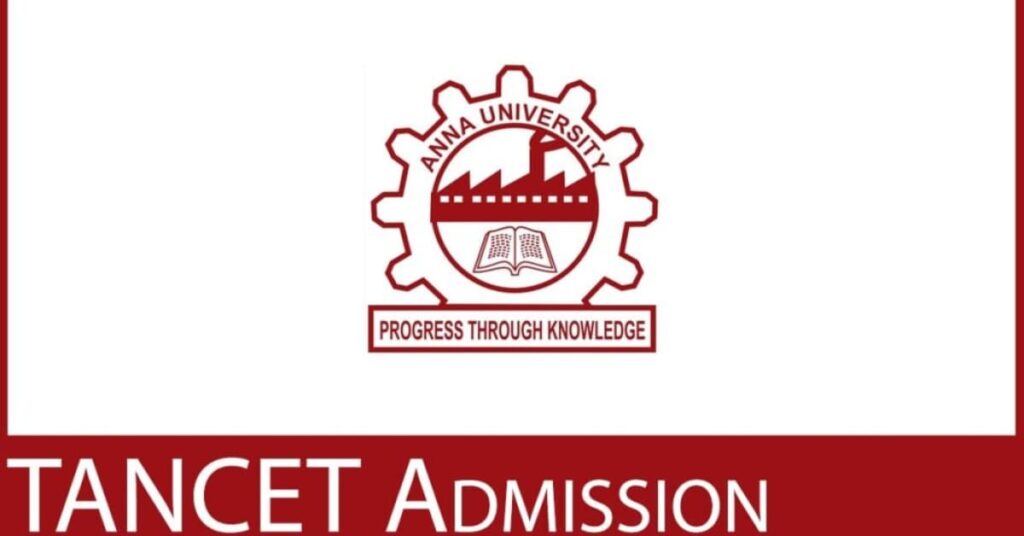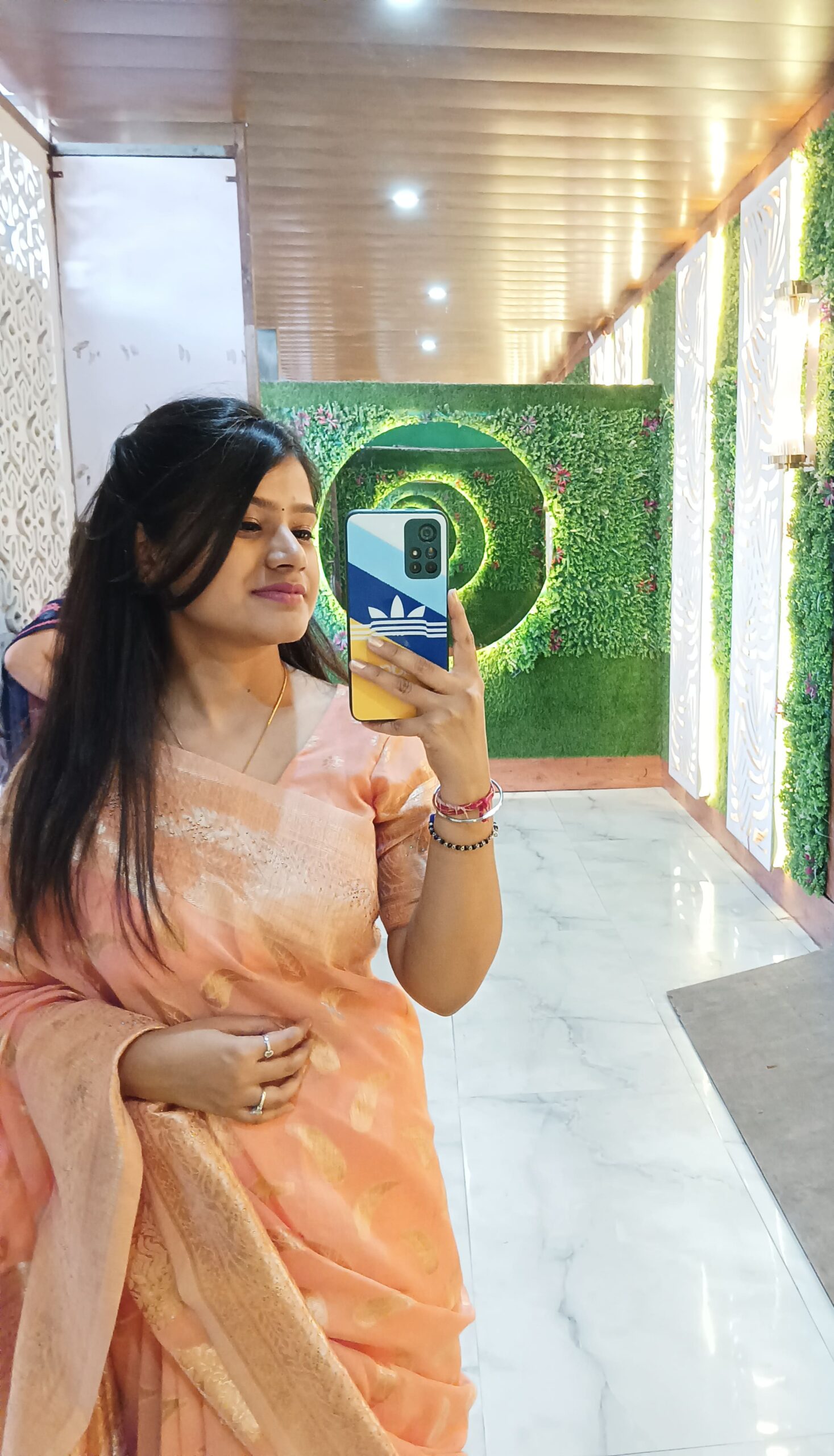TANCET or Tamil Nadu Common Entrance Test is a state-level entrance examination for the candidates seeking admission into MBA, MCA or M. Arch/ ME/ M. Tech/ M. Plan courses.
It is conducted by the Examination cell of Anna University and the candidates who will pass the entrance examination can take admission into the university the applied course.
In this article, we will discuss TANCET 2024 Application Form, Exam Date, Syllabus, Eligibility, Pattern, etc.

TANCET Eligibility Criteria
The following are the eligibility criteria for the TANCET Entrance examination-
MCA
- The applicants must have a valid bachelor’s degree in any discipline (Preference to BCA) with at least 50% marks (45% for reserved category candidates)
MBA
- The applicants must have a valid bachelor’s degree in any discipline with at least 50% marks (45% for reserved category candidates)
M. Arch/ ME/ M. Tech/ M. Plan
- The applicants must be a graduate of B.Tech/B.Arch/ B.Plan from a recognized university with at least 50% marks (45% marks for reserved category candidates)
TANCET Important Dates 2024
| Events | Dates |
| Application form available | January 2024 |
| End to submit the application form | February 2024 |
| Admit Card Issue date | March 2024 |
| TANCET Exam Date 2024 | March 2024 (MCA & MBA) & March 2024 (M.E/ M.Tech/ M.Arch/ M.Plan) |
| Result Date | April 2024 |
| Mark Sheet Download | May 2024 |
| Counselling registration begins | June 2024 |
| Last date to apply for counselling form | July 2024 |
TANCET Application Form 2024
The following are the step by step instructions on how to apply for the TANCET application form-
- Visit the official website of TANCET-Anna university and click on the admission link
- Now, get yourself registered using your Email ID and password followed by logging into your account using your login credentials
- After logging in, fill out all the details like name, address, education qualification, etc.
- After filing the application form, upload all the documents mentioned below followed by clicking on the pay button
- You can pay your application fee using your credit card/debit card, net banking, UPI, etc.
- After making the payment, your application has been submitted and you can now download the application form and payment receipt
Documents Required for TANCET Application form
The following are the documents required for the TANCET application form-
- Scanned photo passport size
- 10 and 12 certificates scanned
- Graduate Degree/ Marks Sheet for Master’s courses
- Scanned signature of the candidate
- Aadhaar card number and a scanned copy
TANCET Application fee
The following are the application fee for the TANCET application form-
| Category | Application Fee |
| General | Rs.600/- |
| SC/ST | Rs.300/- |
TANCET Examination Pattern
The following are the examination pattern for TANCET-
For MBA/MCA Programmes
| Course | No. of Questions | No. of Alternative Answers | Maximum Marks |
| MBA | 100 | 4 | 100 |
| MCA | 100 | 4 | 100 |
M.E./M.Tech/M.Arch/M.Plan
| Course | No. of Questions | No. of Alternative Answers | Maximum Marks |
| Part-I | 20 | 4 | 20 |
| Part-II | 35 | 4 | 20 |
| Part-III | 60 | 4 | 60 |
TANCET Syllabus
The following is the syllabus for the TANCET entrance examination-
Engineering Mathematics (Common to all Candidates) Syllabus
- Determinants and Matrices: Solving system of equations – Rank of the Matrix – Eigenvalues and eigenvectors – Reduction of quadratic form to canonical form.
- Calculus and Differential Equations: Partial derivatives – Jacobians – Taylor’s expansion – Maxima and Minima. Linear ordinary differential equations with constant coefficients – Simultaneous first order linear equations with constant coefficients. Formation of the partial differential equation (PDE) – Solution of first-order PDE – Solution of linear higher order PDE with constant coefficients.
- Vector Calculus: Double and triple integrations and their applications – Gradient, Divergence, Curl and Laplacian – Green’s, Gauss divergence and Stroke’s theorem.
- Functions of Complex Variables and Complex Integration: Analytic functions – Conformal Mapping – Bilinear transformation – Cauchy’s integral theorem and integral formula – Taylor and Laurent Series – Singularities – Residues – Residue theorem and its applications.
- Transforms: Laplace Transform – Inverse transforms – Application to solution of linear ordinary differential equations with constant coefficients. Fourier integral theorem – Fourier transform pair – Sine and Cosine transform. – transform – Inverse Z–transform – Solution of difference equations using Z– transform.
- Numerical Methods: Solution of linear system by direct and iterative methods – Interpolation and approximation – Numerical Differentiation and Integration – Solving Ordinary Differential Equations.
- Applied Probability: Probability and Random variables – Standard Discrete and Continuous distribution – Moments – Moment generating function and their properties. Two Dimensional Random Variables – Covariance – Correlation and Regression
Basic Engineering & Sciences (Common to all Candidates) Syllabus
- Applied Mechanics: Law of Mechanics – Lame’s theorem – Forces, Moments and Couples – Displacement, velocity and Acceleration – Friction – Moment of Inertia.
- Mechanical Engineering: Laws of thermodynamics – Open and closed systems – Equation of state – Heat and Work.
- Physics: Sound – Latices – Ultrasonic flaw detector – X-ray radiography – Interference Fringes – Planck’s quantum theory – Laser and Fibre Optics.
- Material Science: Fracture – Magnetic and Dielectric materials – Conductor and Semiconductor materials – Ceramic and Superconductor materials.
- Civil Engineering: Fluid Statics and Dynamics – Boundary Layer – Pumps and Turbines – Environmental Pollution.
- Electrical Engineering: Ohm’s law – Kirchoff’s law – A.C. circuits – D.C. machines – Transformers – Synchronous machines – Instrumentation.-
- Computers: Computer organization – Architecture – Arrays – Pointers – User-defined function – C program.
- Chemistry: Adsorption – Chromatography – Chemical kinetics – Electrochemistry – Spectroscopy – Fuels and Combustion.
Civil Engineering
- Structural Engineering, Structural Analysis, Building Materials, Concrete Structures, Steel Structures, Soil Mechanics and Foundation Engineering, Transportation Engineering: Highway Planning, Water Resources Engineering, Hydrology and Ground Water, Environmental Engineering, Noise pollution and Control, Surveying
Computer Science and Engineering and Information Technology
- Applied Probability and Operations Research, Discrete Mathematical Structures, Compiler Design, Operating Systems and System Software, Distributed Systems, Programming And Data Structures, Algorithm Analysis and Design Techniques, Microprocessors and Microcontrollers, Digital Signal Processing, Computer Networks, Database Management Systems, Software Engineering Methodologies, Artificial Intelligence, Mobile Computing, Security In Computing
Electrical and Electronics Engineering
- Electrical Circuits and Fields, Electrical Machines, Power Systems, Control Systems, Power Electronics and Drives, Microprocessor and Microcontrollers, Digital Signal Processing, High Voltage Engineering, Electric energy-Conservation and utilization
Electronics and Communication Engineering
- Circuit Analysis, Electronic Devices, Electronic Circuits, Electromagnetic Fields, Communication Theory and Systems, Optical Communication, Signals and System
Mechanical Engineering
- Mechanics, Kinetics and Dynamics, Strength of Materials and Design, CAD / CAM / CIM / FEA, Materials Science and Metallurgy, Production Technology, Metrology and Measurements, Thermodynamics, Heat and Mass Transfer, Fluid Mechanics.
For MBA
The question paper will have sections to-
- Evaluate the candidate’s ability to identify critically the data and apply the data to business decisions from given typical business situations.
- Evaluate the skill of the candidate in answering questions based on the passages in the comprehension.
- Evaluate the skill of solving mathematical problems at the graduate level including those learnt in plus two or equivalent level.
- Test on determining data sufficiency for answering certain questions using the given data and the knowledge of mathematics and use of day-to-day facts.
- Test the knowledge of written English with questions on errors in usage, grammar, punctuation and the like
For MCA
The question paper will have the following sections-
Quantitative ability
- Number Systems
- LCM and HCF
- Percentages
- Profit, Loss and Discount
- Simple Interest
- Compound Interest
- Speed, Time and Distance
- Time and Work
- Averages
- Ratio and Proportion
- Mixtures and Alligation
- Linear Equations
- Quadratic Equations
- Complex Numbers
- Logarithm
- Progressions (Sequences and Series)
- Binomial Theorem
- Surds and Indices
- Inequalities
- Functions and Graphs
- Permutation and Combination
- Probability
- Set Theory
- Geometry
- Mensuration
- Coordinate Geometry
- Trigonometry
Analytical Reasoning
- Direction
- Conditions
- Grouping
- Blood relations questions
- Simple and coded inequalities
- Ranking and time sequence
- Jumbled relation
- Seating arrangement questions
- Complex arrangement
- Problems on ages
Logical reasoning
- Alphanumeric series
- Reasoning Analogies
- Artificial Language
- Blood Relations
- Calendars
- Cause and Effect
- Clocks
- Coding-Decoding
- Critical path
- Cubes and cuboids
- Data Sufficiency
- Decision Making
- Deductive Reasoning/Statement Analysis
- Dices
- Directions
- Embedded Images
- Figure Matrix
- Input-Output
- Mirror and Water Images
- Odd One Out
- Picture Series and Sequences
- Paper Folding
- Puzzles
- Pattern Series and Sequences
- Order & Ranking
- Seating Arrangements
- Shape Construction
- Statement and Assumptions
- Statement and Conclusions
- Syllogism
Computer Awareness
- History of Computers
- Introduction of Computer
- Basics of Hardware and Software
- Input /Output Devices
- Number System
- Operating System Basics
- Basic Internet Knowledge and Protocol
- Basic Functionalities of MS-Office
- Networking and Communication
- Database Basics
- Memory and Storage Device
- Computer Shortcuts Key
- Computer Abbreviation
TANCET Admit Card 2024
The admit card is an important document that every candidate participating in the entrance examination need. If any candidate fails to do so would cause the cancellation of the examination. The admit card can be downloaded from the official website of TANCET. The admit card for TANCET is not yet released by the TANCET, we will update the admit card status once the examination authorities release the notification for admit card download.
TANCET Result 2024
The result is not yet released by the TANCET, we will update the result once the examination authority releases the result for TANCET 2024.
TANCET Counselling
Counselling is an event where the candidates who have passed the entrance test will be commenced and offered admission into the university. To participate in the counselling session, the candidates must get themselves registered for the counselling session. The registered candidates will have to visit the venue at the given time and date with at least 2 xerox copies of the documents mentioned below.
Documents Required for TANCET counselling
The following are the documents required for TANCET counselling-
- Class 10 /high school or its equivalent examination certificate
- Class 12 marks sheet/ grade sheet or equivalent qualifying
- 10 recent colour photographs
- Migration/ transfer/ character certificate from the last attended institution
- SC/ST/OBC Category certificates (if any)
- Graduation Degree/ Marks Sheet for Masters Admission
FAQ
TANCET stands for Tamil Nadu Common Entrance Test.
TANCET offers post-graduation courses such as M.B.A, M.C.A, M.Plan, M.Arch, M.Tech, and M.E.

Priya Bansal is a seasoned education writer with a passion for creating insightful and engaging content. With a background in education and a knack for research, she excels at producing articles, blogs, and resources that inform and inspire. Priya’s work contributes to the enrichment of educational discourse and empowers learners of all ages.






